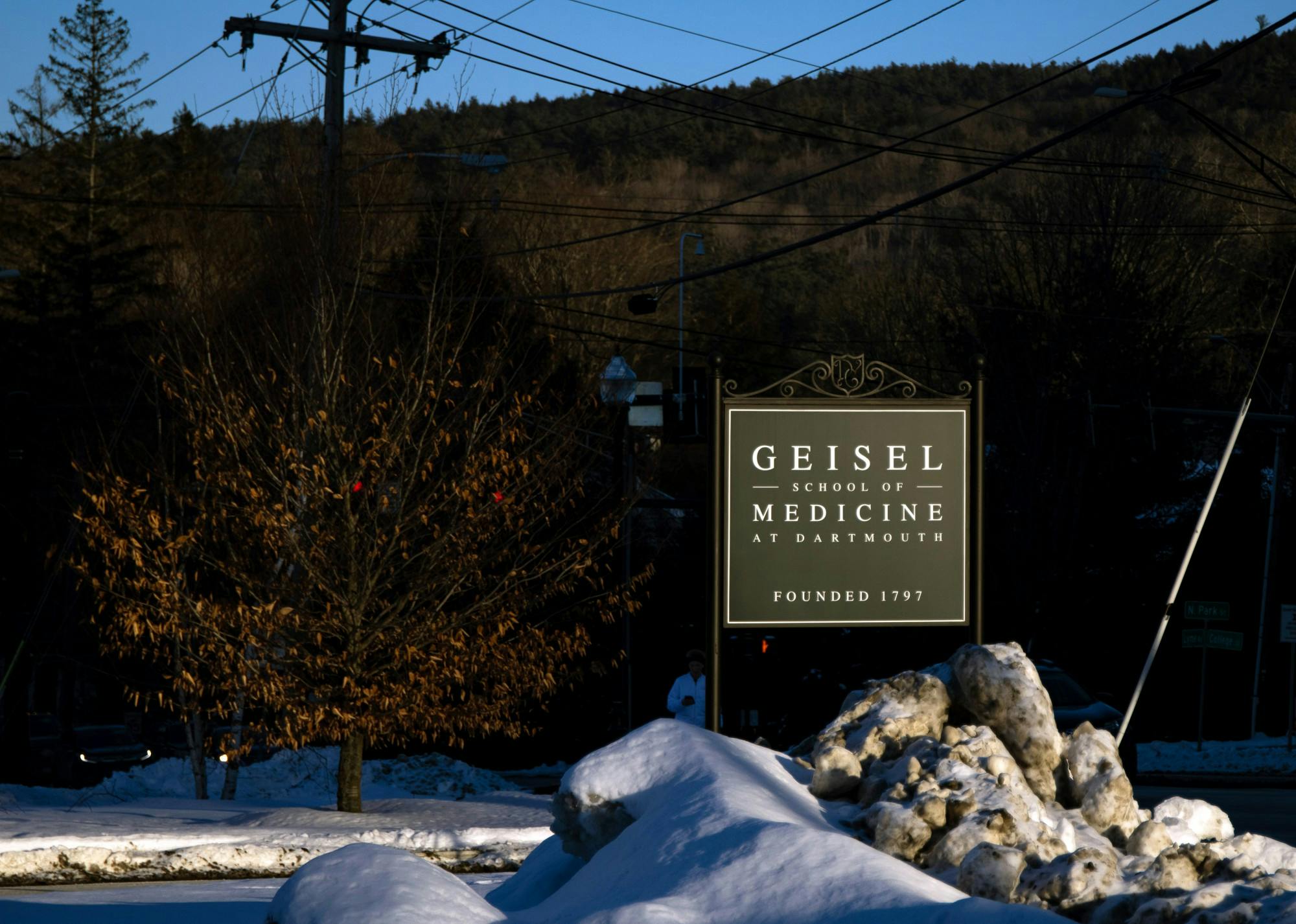The Geisel School of Medicine typically awards up to five dedicated Dartmouth juniors a ticket straight to their medical degree after graduation through its Early Assurance Program. Students apply to the EAP in the fall of their junior year, and those who are accepted into the program are not required to take the Medical College Admissions Test to gain entrance to Geisel. This February, an exceptional eight students from a record high pool of 29 applicants received their acceptances. This is the second time more than five students were offered admission to the EAP, with six acceptances in the 2022-2023 cycle.
The program — which has existed in its current form since 2013 — streamlines the application process for Dartmouth students and allows Geisel to retain promising graduates, according to Geisel Admissions Director Aileen Panitz.
“We wanted to incentivize strong, committed and dedicated students to stay in Hanover,” Panitz said. “The perk for them is they find out early that they do not have to take the MCAT, and then their senior year presents a trade-off to dive into other opportunities like taking on a leadership role, doing a thesis or whatever other extracurricular they might be very committed to.”
Students who apply to the EAP are not required to have completed all of the pre-medical student prerequisite courses when they apply, which grants academic flexibility for those who are admitted to the program. Madison Spivak ’24, who was accepted during the 2022-2023 application cycle, said the program presented an excellent opportunity to restructure the rest of her time at Dartmouth.
“The fact that you don’t need to take the MCAT or go through the application process for 20 schools was very appealing on top … of having the security to know what your future will look like sooner,” Spivak said. “I got to really focus on things that I care about and that I was passionate about, instead of checking a box and getting a certain number of clinical hours [or] volunteer hours.”
Spencer Mancuso ’25, who was accepted to the program in February, echoed Spivak and added that one of the major benefits of the EAP is “avoiding the whole cost of the application cycle.”
“It costs $130 to [apply to the EAP], whereas for regular medical school applications, you pay over $1,000 to apply to 20 to 30 schools, plus the costs of taking the MCAT,” Mancuso said. “There is also the opportunity cost of not having to work as much and study for the MCAT — these are investments in my wellbeing.”
Applying to Geisel through the EAP allows students continuity between their undergraduate and medical school experiences. Dr. Christopher LaRocca ’80 Med’84 applied and was accepted to Geisel — which, at the time, was named Dartmouth Medical School — through early assurance in 1978. As a current Geisel professor and former chair of the Geisel Admissions Committee, LaRocca said many EAP applicants appreciate the opportunity to remain a part of the Dartmouth community.
“A lot of the undergraduates applying early assurance are involved in activities — medically-related or not — in the Upper Valley, and many of those students want to stay and continue,” LaRocca said.
As part of the Health Professions Program — Dartmouth’s academic advising organization for those interested in health professions — a pre-health advising team helps interested students determine if applying to the EAP may be worthwhile. Assistant dean of pre-health advising Sarah Berger said the advising process is slightly different for juniors undergoing the EAP application process, as they have not completed all pre-med requirements, compared to seniors applying to medical schools.
“We are looking to see not if they have a finished picture like they would if they were a senior, but a complete enough picture ... to demonstrate their passion and exploration of medicine,” Berger said. “We sit down with a potential applicant and … help them assess if this is a moment in which they could be considered a strong applicant … we might be able to help applicants determine if applying is worth their time.”
Even for the majority of students who are not selected for the program, Mancuso said that applying may still prove to be productive for their medical journeys, as Geisel and the pre-health advising team will provide feedback on their applications.
“The pre-med mentors market [the EAP application] as a test drive on the medical school application process, so I wanted to at least see what some weaknesses might be in my application,” Mancuso said. “Even if I hadn’t gotten in, it still would have taught me a lot about how I value my time at Dartmouth and put me on a good trajectory towards medical school.”
Panitz said the EAP not only grants accepted students a head start in their medical journeys but also strengthens and maintains the relationship between undergraduate and Geisel communities.
“There’s a close relationship, like family, between Geisel and Dartmouth, and we want to be supportive of Dartmouth College students who want to pursue medicine,” Panitz said. “The nice thing for all the Dartmouth students applying is that they’re familiar with a lot of the Geisel resources — like research — and we have familiarity with the work that they are doing as well.”
According to Spivak, students accepted to Geisel through the EAP find community with other members of the same class, as well as the classes admitted before them.
“It’s nice to have other people to share this experience with because not going through the MCAT and traditional process is a little unorthodox and unique,” Spivak said.




